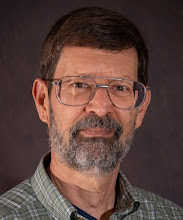Penal Substitutionary Atonement?
That’s what I used to think I believed!
Then, quite some time ago I was introduced to several OTHER atonement theories.
Other “theories”? What do you mean “theory”? Isn’t it clear what the Bible teaches?
Well, maybe not so much!
I “grew up” in the Evangelical world, with the Campus Crusade bridge, Chick tracts and other similar evangelistic tools. The message went something like this:
· God is holy and can’t tolerate sin in his presence.
· Man chose to sin, and has therefore separated himself from God.
· God as a just judge is angry with sin / man and requires retribution.
· Therefore, man faces eternal conscious torment estranged from God, forever aware of his short comings.
· However, out of love for us, Jesus steps in an takes the punishment for us!
· If we “accept” Jesus’ payment as a gift, all is good, and we live forever in heaven with God instead!
I was challenged to think this through more deeply when I heard someone else describe what they were hearing in this message:
· God is an angry God that required vengeance when he was disobeyed!
· God’s Son stepped between us and God and took the brunt of God’s anger. God beat up his Son to get his anger satisfied! (God may still let us feel some of his anger from time to time anyway! Think about Annanias and Sapphira, the guy who died because he took the Lord’s supper in an unworthy manner in I Corinthians 11, etc.)
· If you “accept Jesus as your personal savior”, you are OK with God; sort of. But there still are some concerns (especially for some of us who don’t believe in eternal security or election) such as The Sheep and the Goats (Matthew 25), and the “I never knew you (Matthew 7)!”
So, as it was pointed out by an “outsider”, to him, my God is a vengeful child abuser! He is just like so many of those other fickle gods of mythology who need appeased!
What about all that stuff about God is Love? I Corinthians 13 talks about love being forgiving! In the Lord’s prayer, we are told we need to forgive if we are to be forgiven! Does that allow us to kick the dog first when we are angry before we forgive someone?
Something doesn’t mesh here!
Personally, I like some of the other atonement theories better, especially Christus Victor, for example! I know there exist passages that seem like a court room, or are transactional, requiring punishment or payment for sin, but I tend to think we are missing something here either in what was meant, or maybe carrying the illustration too far.
So, for me, for right now, in my understanding of God the Father, Jesus the Son, and the Holy Spirit, being one consistent God of love, I need to reject penal substitutionary atonement, at least in the form it was taught to me.
I can only begin to understand what all Jesus and his Father accomplished on the cross, but I choose to believe it was pure love, not anger! I hear Jesus ask the Father to forgive his executioners!
But didn’t Jesus cry out asking why his Father had forsaken him? For those who didn’t know the Psalms, it indeed appeared that Jesus was rejected, forsaken by God! But this was only code! Read the rest of Psalm 22! Jesus was invoking the beginning of the Psalm to encourage those who knew the rest of the Psalm that his death was not the end, but the path to victory, to triumph, to exaltation! It was not defeat, as it appeared for the moment.
What appeared as an angry God lashing out at Jesus and then turning his back on him to let him die, was NOT what actually happened! Jesus’ coronation on the cross, followed by his resurrection, was the inauguration of his new kingdom, to be governed by love, which includes forgiveness, and much more!
Indeed, Jesus is the Victor! He is risen indeed!
